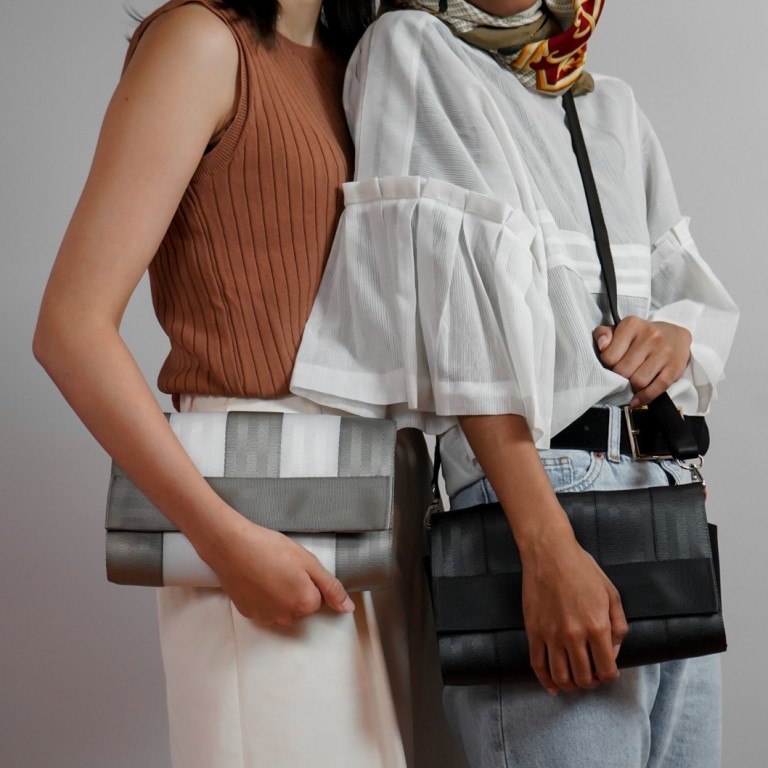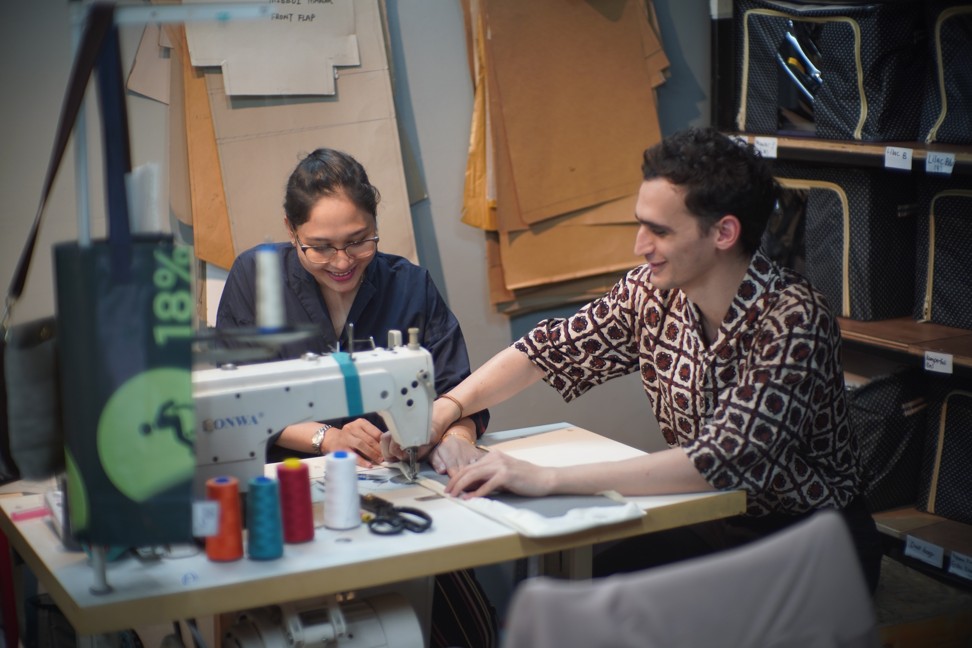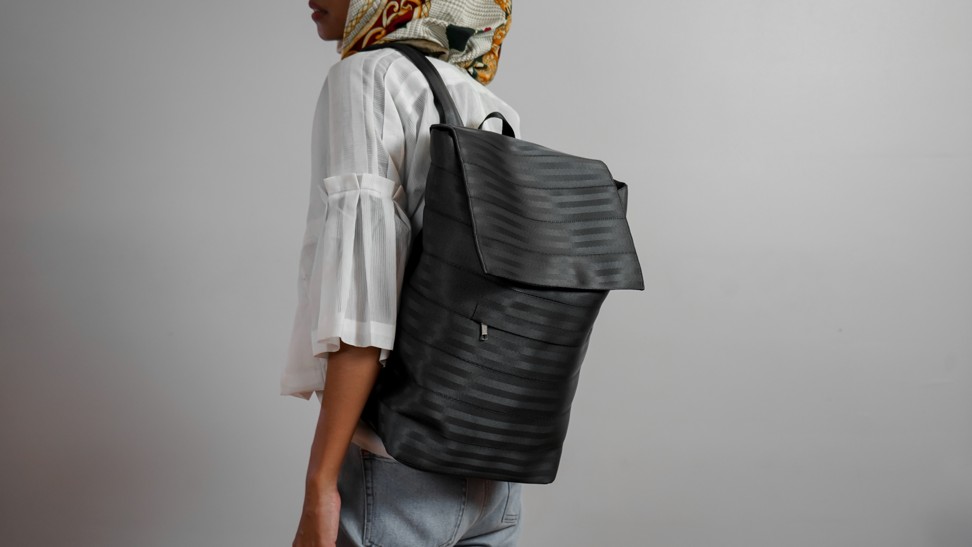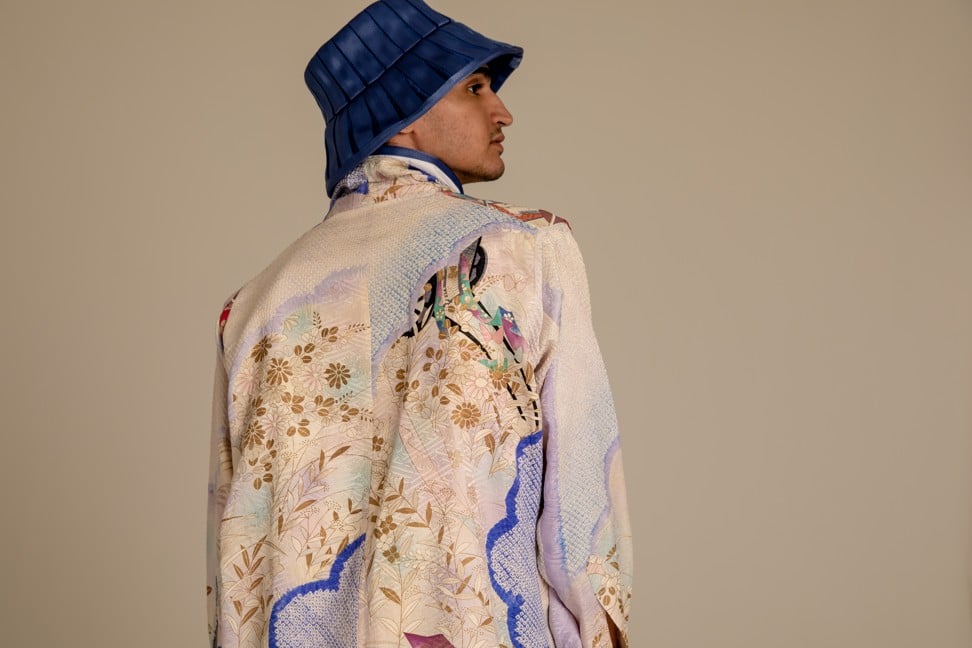
Malaysian fashion brand Biji Biji upcycles seat belts and plastic trash into runway collections in the name of sustainability
- Named after the Malay word for seed, the group began with a broad mission to explore sustainability through upcycling
- 87 per cent of material used for clothing production ends up being burned or dumped in landfill, according to the Ellen McArthur Foundation
In the basement of a shopping centre in Kuala Lumpur, you’ll find one of Malaysia’s most unusual fashion ateliers.
In a small workshop, sewing machines hum as the team works to create satchels, tote bags and other accessories. Look closer and you might guess at the origins of the materials.
“Biji Biji started as friends who were living together and wanted to contribute to society, the environment,” explains 28-year-old Ambika Sangaran, managing partner of the Biji Biji brand.


But when they were commissioned to create upcycled bags for the World Innovation Forum in 2013, the team realised there was a market for fashion accessories. Today, there’s a dedicated team of four people working on the fashion line alone, under the broader Biji-biji Initiative.
“We started by trialling and testing,” explains Sangaran, who previously studied sustainable tourism. “We looked for ideas online and our in-house tailors reverse engineered some products.”
The team was also joined by trained designers who shared a vision for sustainable fashion. Since Biji Biji works almost exclusively with waste materials, it means they always have to adapt the designs to the material – rather than the other way round.

Since then, more possibilities have opened up. Last year, Biji Biji decided to expand beyond accessories and created a full fashion collection for the first time.
At a local arts and crafts market, they spoke to Tengku Syahmi, an established Malaysian designer whose brand, Tsyahmi, is known for elegant, contemporary tailoring.
Having championed sustainability in fashion since early in his career, Syahmi was enthusiastic about collaborating with Biji Biji – especially when he saw the kimono fabrics.
It’s batik, but not as we know it – what would grandma say?
In August 2019, the Biji Biji X Tsyahmi collection was presented at KL Fashion Week in Kuala Lumpur, Malaysia's capital. The show brought together two very different worlds, as the city’s well-heeled celebrities saw the work of the social enterprise up close.
“It’s a different crowd, not the environmentally conscious or social enterprise ones,” says Sangaran. “It was an experience to get to know this scene, a whole different market to explore.”
Modelled by both men and women, the collection features vivid, billowing structures inspired by Malaysian Nusantara warriors and Japanese samurai and geishas. Straps sourced from seat belts and hiking safety gear are used to dramatic effect, their sturdy fabric reinvented as stripes of urban armour. Elsewhere, the vintage kimono fabrics are layered for soft tailoring and draping.

McCartney is perhaps the fashion industry’s most well-known advocate for sustainability, and her brand is working on reducing waste through a circular approach to materials and resources. This year, the company aims to transition all its nylon fabrics to ECONYL®, which is made from recycled fishing nets.

Yet the fashion industry at large still depends on – and perpetuates – a linear production system where large amounts of waste are created.

The Biji Biji team know that there’s a long way to go. There are a lot of challenges to creating upcycled fashion in a market that’s primed for fast fashion tastes.
Due to variance in their raw materials, it will always be hard to create bulk orders that are exactly the same. They also can’t follow particular fashion trends – especially those that involve unsustainable fabrics and embellishments.
But Biji Biji see themselves as part of a bigger picture. “We want to make changes in the fashion industry, but it’s not about having just one ethical fashion label,” says Sangaran. “It’s about exposing your cause to other people and getting other designers, anybody, to think more consciously.”
“Putting out a collection that’s entirely made of waste materials may not change the entire industry immediately, but it might open the minds of people who see it.”

